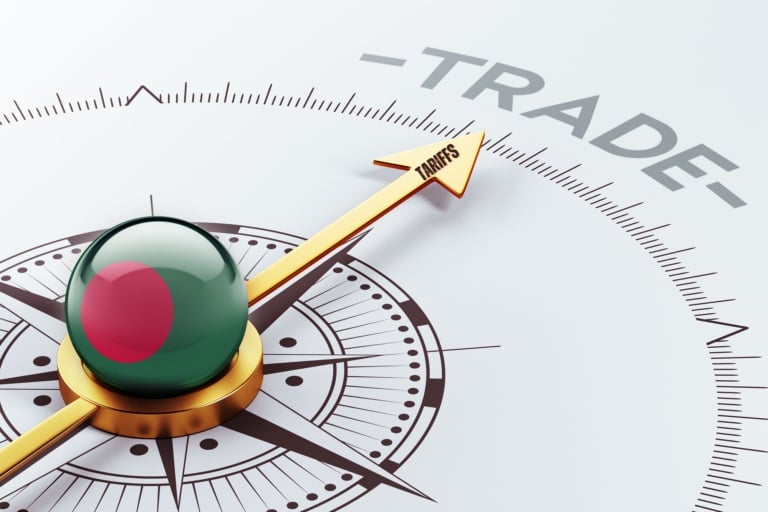November 28, 2025 | 02:26 GMT +7
November 28, 2025 | 02:26 GMT +7
Hotline: 0913.378.918
November 28, 2025 | 02:26 GMT +7
Hotline: 0913.378.918

Trump, who has accused various countries of becoming rich at the expense of Americans, has now introduced import tariffs. Photo: Canva.
Although they have been in the air for some time, the tariffs have hit like a bombshell. The levy will come into effect on Wednesday 9 April. The European Commission is now preparing a package of countermeasures.
Chairman Ursula Von der Leyen calls the announced tariffs ‘a major blow to the global economy’. All scenarios for a European counter-reaction are on the table. For possible counter-tariffs, the European Commission would look at industries where it hurts the US and where the EU has alternatives. Soy from Brazil is specifically mentioned. Meanwhile, European farmers do not want the EU to retaliate against Trump’s import duties. The European umbrella organisation Copa-Cogeeca hopes that the EU will negotiate with the US to prevent a trade war.
Copa President Massimiliano Giansanti said in a press release: “Retaliatory trade measures will not benefit farmers in either the EU or the US. Instead, they will limit our opportunities, raise prices, and weaken the resilience of agricultural businesses. We call on both administrations to prioritise negotiations and explore all diplomatic avenues before resorting to measures that could have long-lasting consequences.”
There are also concerns from farmers in America. The American Farm Bureau Federation (AFBF) emphasises that trade is critical to America’s farmers. Tariff increases threaten the economic sustainability of farmers, who have lost money on their staple crops over the past 3 years.
More than 20% of farm income comes from exports and farmers are highly dependent on imports for key supplies such as fertiliser and specialised tools. The AFBF foresees long-term damage from loss of market share for American farmers.
President Donald Trump came up with different tariffs for each trading partner. They range from a basic levy of 10% for all countries, including the United Kingdom, to 34% for China and 49% for Cambodia, a country that produces and exports a lot of cheap clothing. According to Trump, the 20% for products from the EU is still low compared to what the EU would levy on American products. The levies are in addition to previously imposed rates for aluminium and steel, among other things.
Trump accused other countries of ‘looting’ and ‘robbing’ the US and becoming rich at the expense of Americans. He promised to rapidly build up American industry and to break down trade barriers in other countries with the new import duties.
Economist Theo Smid of Atradius tells ANP new agency: “If this trade war escalates further, open economies will suffer the consequences. This could lead to an increase in the number of bankruptcies worldwide and a slowdown in economic growth.”
(Poultryworld)

(VAN) A new study reveals how the simultaneous effects of ocean acidification, salinity and loss of oxygen are making the world more fragile.

(VAN) Hopes are growing that the creation of the first 3D turkey gut model could be a turning point in the battle against the virulent blackhead disease.

(VAN) Tyson, America’s biggest meat supplier, plans to shutter one of its largest beef processing plants as the industry continues to struggle with low cattle supplies and political pressure from Washington.

(VAN) New FAO study shows how digital solutions are empowering farmers and fishers to prevent losses and build resilient agrifood systems.

(VAN) Brazil's COP30 presidency pushed through a compromise climate deal on Saturday that would boost finance for poor nations coping with global warming but that omitted any mention of the fossil fuels driving it.

(VAN) Poultry farmers in the UK have been warned that they could face one of the worst winters yet for bird flu.

(VAN) Prices of main-crop paddy have risen sharply, with jasmine rice hitting 16,100 baht per tonne — the highest level in years.